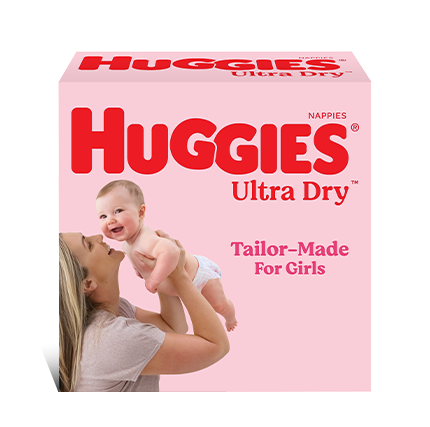It’s hard to think about adding another thing to your schedule when you have a newborn but, at a time when you have never been more exhausted, a little endorphin rush can really help your flagging energy levels. A study from the University of Melbourne has also shown that participating in an exercise program in the first three months after giving birth can halve a mother’s risk of depression, as well as increasing her sense of well being.
Once you have had clearance from your doctor that it is safe to do so, incorporating exercise into your routine is an excellent way to help maintain your mental health at a time when you are vulnerable to the risk of post natal depression.
According to Professor Mary Galea, of the University’s Physiotherapy Department and senior author of the study: “Exercise has a beneficial effect to all cells in the body. Exercise promotes the release of factors called endorphins and creates a sense of well-being. Not exercising means less release of those factors.”
Emily Norman, the founder of the study, concurs: “Observing the women in the study, it could be suggested that if women are not exercising, they are not getting as much of the natural ‘endorphin’ release that comes with exercise. They may not be getting out of the house in the fresh air, or with other mums who are going through the same thing. They may be feeling negative about their bodies, getting less sleep and feeling more stressed. We know exercise helps with these things”
Professor Gale encourages women who want to exercise safely after giving birth to contact their women’s health physiotherapists for exercise programmes that enable them to be safely active. The vast majority of hospitals have physios attached who will be able to give advice freely, and many hospitals run free information classes for women to access for support and guidance.
A programme like the one developed by Ms Emily Norman of the University’s Physiotherapy Department creates valuable opportunities for women who are time poor. Women are able to bring their babies to the class and participate in an exercise programme especially designed by physiotherapists that caters to their needs. Afterwards, various professionals are available to address any concerns or questions they might have.
The feedback has been overwhelmingly positive. One of the participants said, “The first time I came along to the group, I was really nervous about how I would fit in feeding. And what if my baby cried? But when I got there everyone was feeling the same way!” Another participant said, “Being a second time mum, I didn’t have a formal mothers? group so it was great to go to this program, meet other new mums who also had kids, while exercising and spending some quality time with my second child while my toddler wasn’t there”
This groundbreaking study involved two groups of women. One group was given an eight-week “Mother and Baby” program, including specialized exercises provided by a women’s health physiotherapist combined with parenting education. In contrast, in the second group – “Education Only” – the participants only received the written educational material.
Both groups were assessed for psychological wellbeing (using the Positive Affect Balance Scale), depressive symptoms (using the Edinburgh Postnatal Depression Scale) and physical activity levels. The study’s key finding was that exercise increased the wellbeing of the women and reduced their risk of Post Natal depression.
Anecdotally, the programme found the women formed valuable friendships with each other as well and they arranged meet-ups for exercise and coffee dates after the programme had ceased. For women at risk of Post Natal Depression the forming of relationships like this was a valuable support at a difficult time.
Whilst this 8-week programme is currently only available in Melbourne it is hoped that it will be rolled out nationwide in Australia. There are also increasing numbers of other Mums and Bub type exercise classes being run in Australia , as it is recognised that many women want to exercise, but also want to spend time with their children, or are unable to access childcare. These classes are available nationwide and are an excellent way to meet other mums in similar circumstances as well as providing a safe way to exercise.
Kelly and Liz formed a close bond at their group exercise class. Because they both had their babies in tow they sympathised with one another when the babies fretted, and compared notes on how each was progressing. Liz who had been at high risk of PND found the exercise classes meant she not only felt physically better, but they were the source of a valuable friendship at a time when she sometimes found it hard to cope. “Just chatting to Kelly about the sleepless nights made it all a bit easier. I didn’t feel as guilty that I was tired or sad. Just sharing that helped.”
For those mums who can’t get to an exercise class Galea says, “Even getting out and walking with the baby in a pram is a great thing to do.” For Gemma, mum to a six month old, exercise helped her cope with the stresses of her new baby: “On the days when the weather was good I just popped Ally in a stroller and we went for a fast walk. She”d usually fall asleep when I was walking and the fresh air helped to clear my head. I found I slept better at night on the days when I exercised and I found it easier to wake up for her night time feeds. On the days when we couldn’t get outside I jogged on our treadmill for 20 minutes while she slept."
For those days when you simply can’t leave home it is good to exercise at home using a DVD or treadmill. There are now a good range of options to mums from exercising in groups to the privacy of your own home which will enable you to exercise safely, safe in the knowledge that this valuable piece of “me time” goes a long way to maintaining or supporting your mental health.
This article was written by Sarah Pietrzak.
Last Published* May, 2024
*Please note that the published date may not be the same as the date that the content was created and that information above may have changed since.


















